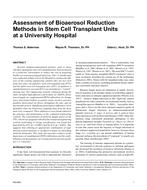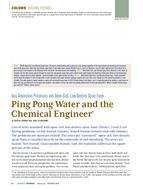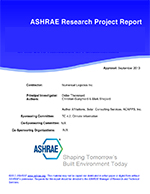Ventilation systems are utilized to exhaust stale air and bring fresh air into sealed buildings. In order to maintain a comfortable indoor environment, this incoming air must be heated or cooled, which consumes energy. As such, membrane based plate-type energy recovery ventilators (ERVs) are a component used in many energy efficient ventilation systems. In these air-to-air ERV exchangers, incoming and outgoing air streams are passed over opposing sides of a membrane through which heat and moisture are transferred. This decreases the ener gy use of buildings by using the exhaust air to heat/cool and humidify/dehumidify the incoming air depending on the season. Ideally, membranes for these devices should have high water vapour permeation rates, and be selective for water vapour over the transport of other gases, volatile organic compounds (VOCs) including formaldehyde, odours, and contaminants that may be present in the outgoing indoor air stream. Current certification and standards in North America focus on the measurement of the Exhaust Air Transfer Ratio (EATR) based on tracer gas tests. This test may be appropriate for measuring defects and leakage in exchangers, but may not account for sorption and permeation phenomena which may be observed in polymeric membrane systems. We report results for the transport of water vapour, carbon dioxide, oxygen, and VOCs through a number of ERV membranes based on different polymers. Building ventilation systems are modeled using CONTAM software to demonstrate the effect of crossover in the ERV on indoor air quality (IAQ) under intermittent release (ie. cooking odours, smoking, cleaning, etc.) and consistent release (ie. off-gassing of VOC’s or carbon dioxide associated with building materials or occupancy) of contaminant.
Citation: IAQ Conference: IAQ 2013: Environmental Health in Low Energy Buildings
Product Details
- Published:
- 2013
- Number of Pages:
- 8
- File Size:
- 1 file , 1.9 MB
- Product Code(s):
- D-2013IAQConf-78


